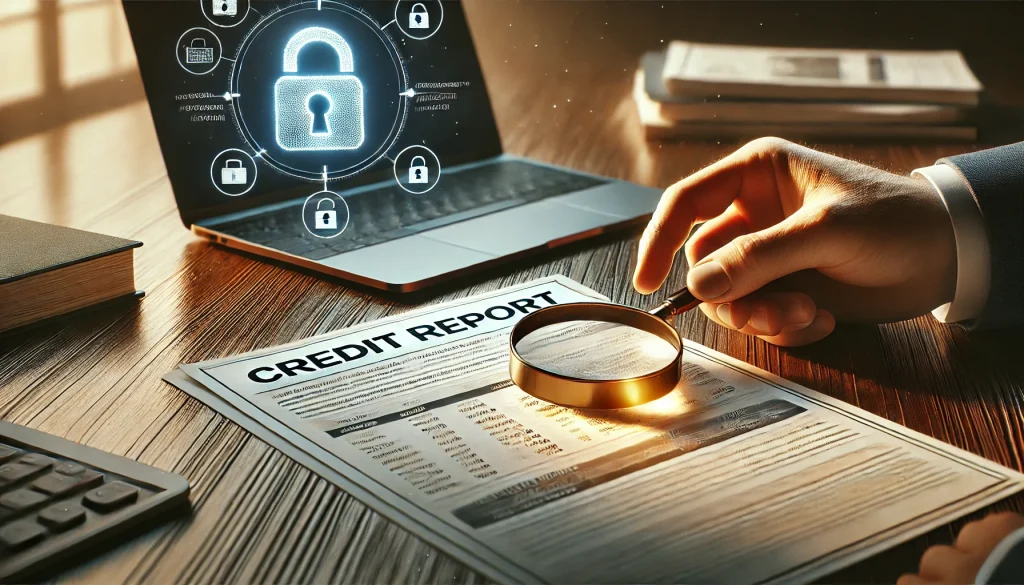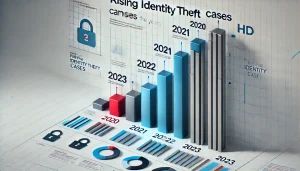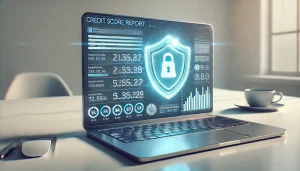Your credit score is more than just a number—it’s a key to your financial future. But in the quest to stay informed, many people unknowingly expose themselves to risks when they check their credit scores online. While keeping an eye on your credit is crucial, the process can be fraught with hidden dangers if you don’t choose the right platform.
This article will explore why credit monitoring is essential, the risks associated with unverified websites, and how to protect your information without compromising your security.
Why Monitoring Your Credit Score is Vital
Credit scores play a pivotal role in financial decisions, from securing a mortgage to getting approved for a credit card. Here’s why checking your score matters:
- Catch Errors Before They Hurt You
- According to a 2022 report by the FTC, 1 in 5 consumers has an error on their credit report that could negatively affect their score.
- Catching these errors early can save you from higher interest rates or loan denials.
- Detect Identity Theft Early
- In 2023 alone, identity theft caused $8.8 billion in financial losses in the U.S. (Source: FTC).
- Regular credit score monitoring can alert you to unauthorized activity.
- Stay Prepared for Opportunities
- A strong credit score allows you to seize financial opportunities when they arise. People with credit scores above 700 save an average of $5,000 in interest over a lifetime compared to those with lower scores. (Source: Experian)
The Risks of Checking Your Credit Score on Unverified Sites
While monitoring is essential, not all websites are trustworthy. Here are the dangers of using unverified platforms:
- Data Harvesting
- Many websites collect more data than necessary and sell it to third parties. A study revealed that 60% of credit-checking platforms don’t fully disclose how your data is used. (Source: Privacy Rights Clearinghouse)
- Phishing Scams
- Fraudsters create fake websites mimicking legitimate services. Clicking on these can expose your sensitive information.
- Unnecessary Credit Inquiries
- Some websites conduct hard credit inquiries without your consent, which can temporarily lower your score.
A Real-Life Scenario:
In 2021, a young professional from Florida unknowingly used a fraudulent website to check her credit. Within weeks, her identity was stolen, leading to unauthorized loans in her name.
How to Check Your Credit Score Safely
To ensure your financial safety while staying informed, follow these best practices:
- Research the Platform
- Use only websites with clear privacy policies and verified encryption methods. Avoid platforms with vague terms or questionable reviews.
- Check for HTTPS
- Always ensure the website URL begins with “HTTPS.” This indicates secure data transmission.
- Limit Permissions
- Provide only the information necessary for the credit check. Avoid platforms that ask for irrelevant details.
- Use Trusted Sources
- Stick to well-known credit monitoring services that have a proven track record of protecting user data.
Stats You Should Know
Data Security Concerns:
- 76% of consumers are concerned about how their data is handled online when checking credit scores. (Source: Pew Research Center)
- 1 in 3 people has experienced a privacy breach from using untrustworthy platforms.
Why Checking Credit Matters:
- Consumers who monitor their credit scores monthly are 30% less likely to fall victim to financial fraud. (Source: FICO)
Table: Risks of Unverified Credit Check Websites
| Risk | Impact | How to Avoid |
|---|---|---|
| Identity Theft | Personal data misuse | Use sites with encryption (HTTPS). |
| Hard Inquiries | Temporary drop in credit score | Confirm type of inquiry upfront. |
| Data Resale | Unwanted ads, scams | Read privacy policies carefully. |
How to Keep Your Credit Score Safe
Beyond using the right platform, there are proactive steps you can take to safeguard your credit score:
- Monitor Regularly
- Check your score at least once a month to catch errors or fraud early.
- Set Up Fraud Alerts
- Many services offer free alerts when suspicious activity occurs on your accounts.
- Protect Your Personal Information
- Avoid sharing sensitive data over unsecured Wi-Fi or on unfamiliar websites.
- Understand the Process
- Familiarize yourself with how credit checks work to spot anything unusual.
Final Thoughts
Checking your credit score is an essential habit for maintaining financial health, but the platform you choose matters. By being cautious and informed, you can protect your data while staying on top of your credit. Remember, your credit score isn’t just a number—it’s your gateway to financial opportunities.
Stay smart, stay secure, and monitor your credit with confidence.




